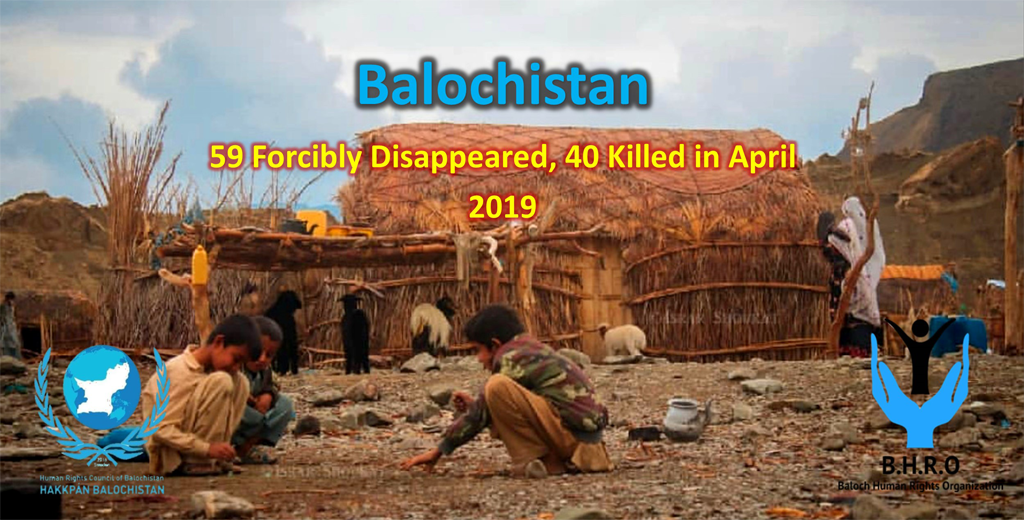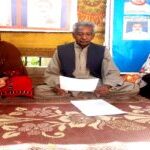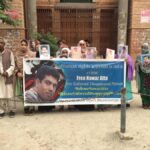In the month of April, fifty-nine persons were forcibly disappeared by security forces from Awaran, Kech, Gwadar, Lasbela, Panjgur districts of Balochistan. Forty people were killed in April including victims of Hazar Ganji bomb blast which left twenty dead and 48 wounded.
Majority of the districts in Balochistan remained inaccessible.
Abduction and enforced disappearance of women and children continued in the same pace. On 30 April, security forces raided Shehaq Bugti’s house in Rabi, Naseerabad and abducted five women and 4 children. The victims were later identified as Dhando Ratta Bugti, Shozan Shehak Bugti, Bujari Bibi Shehak, Pati Karim Bugti, Jamil Karim, 6 years old Batte Khan Shehak Bugti, Zargul Shehak, 3 years old Amina Bibi Shehak and Noor Banuk Shehak.
On 1st April, security forces raided several houses in Tijaban, Singabad district Kech and abducted nine civilians. Abductees were identified as, Musa Bujer, Rafiq Ahmed, Trongal Zabad, Amir Bakhsh Zabad, Wahag Musa, Gulab Musa, Patan Musa, Bahot Mia and Faiz Mohammad Nawab. Rest of the abductees were later released by the forces, except Rafiq Ahmed and Ameer Bakhsh Zabad. Their fates and whereabouts remain unknown to this day.
On 5 April, security forces started a house-to-house search operation in Kohad area of district Kech and abducted seven persons, Haibthan Abdi, Niaz Qadir Dad, Rashid Dilmurad, Mehran Rasool Bakhsh, Izzat Khursheed, Hameed Shahdad and Siddique.
In another incident on 06 April, a fourteen years old boy, Samir Nasrullah Notezai was abducted by unknown armed persons, driving a Vigo car, from Faisal Colony, Dalbandin. On the other hand, Pakistani security forces and personnel of intelligence agency whisked away Asfandyar s/o Abdul Karim from Nushki, Balochistan on the same day.
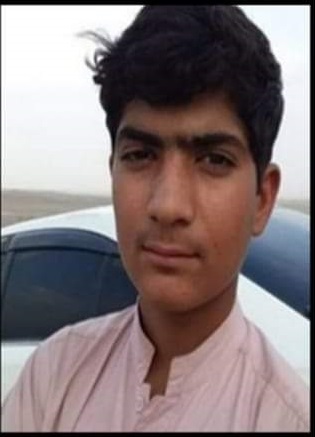
Samir Nasrullah Notezai was abducted by unknown armed persons, driving a Vigo car, from Faisal Colony, Dalbandin. Photo: Current Balochistan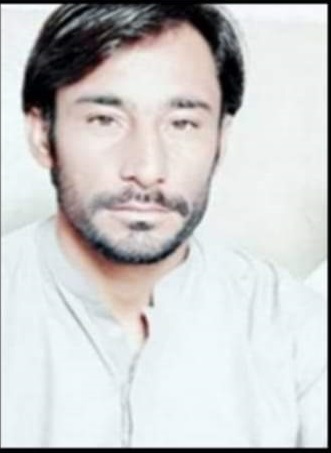
Pakistani security forces and personnel of intelligence agency whisked away Asfandyar s/o Abdul Karim from Nushki, Balochistan. Photo: Current Balochistan
On 18 April, security forces raided the house of Dilmurad Dur Mohammad in Rais Goth, Karachi and forcibly disappeared his three sons, Hanif, Hafiz and Hamid. On the same night forces raided the house of Mohammad Ayoub in Hub Chowki and whisked away his sons, Parvez Jumma, Zakir, Altaf and Bahadur. Their whereabouts are still unknown. All of the abductees are residents of Awaran, Balochistan and migrated from Awaran few years ago because of the ongoing military offences in the area.
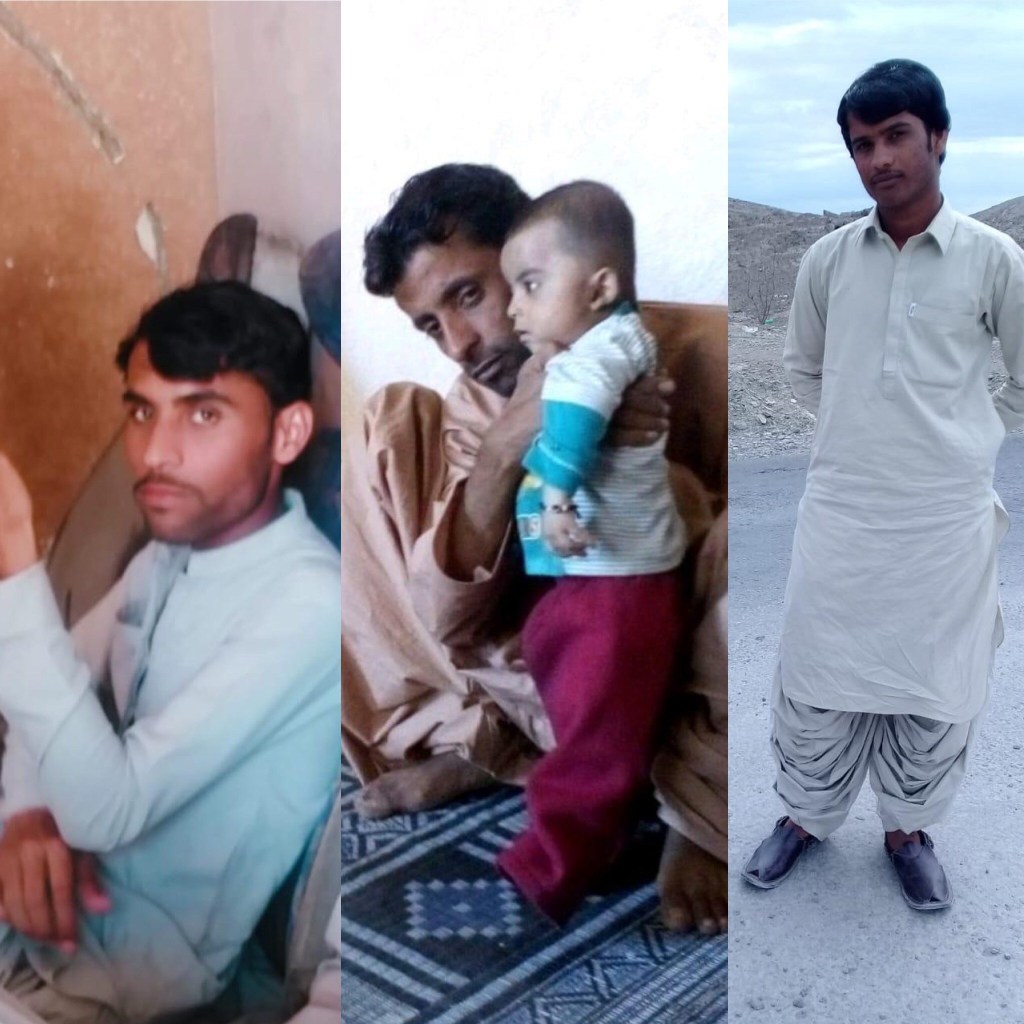
From L to R: Haneef Murad, Hameed Murad and Hafeez Murad. Photo: BHRO 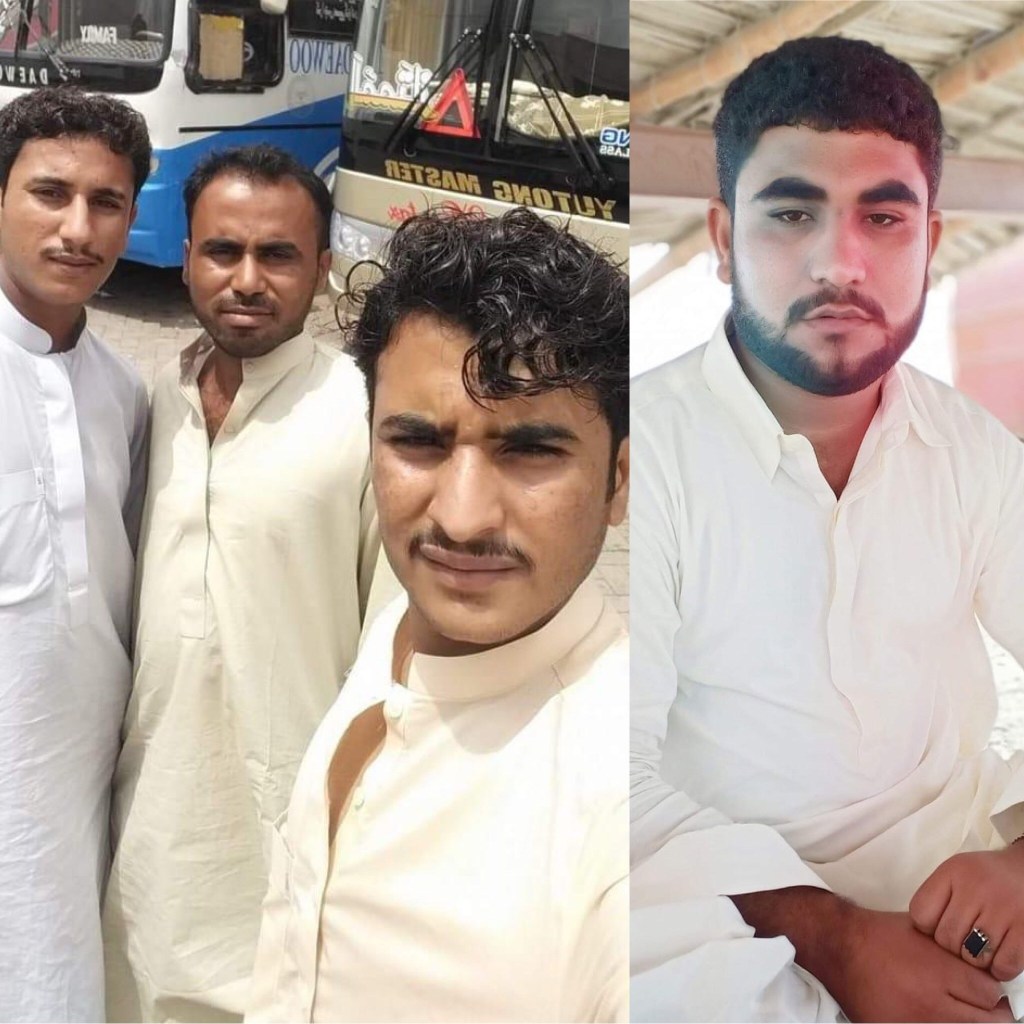
From L to R: Altaf Ayub, Parvaiz Jumma, Bahar Ayub and Imdad Hashim. Photo: BHRO
On 25 April, forces abducted seven civilians from Tank area of Mashkay district Awaran during a military operation. The victims were identified as Bahram Ali Jan, Gulab Mohammad Omar, Naseer Khan Mohammad, Musharraf Naseer, Khan Bagi, Gulab Sohrab and Rustom.
Five mutilated bodies were found in different areas of Balochistan during the month of April. two women were killed in honor killing, twelve persons were killed in target killing and encounter between armed forces and separatist groups, one case of extra-judicial killing. 20 civilians lost their lives in a bomb attack on Hazara community in Quetta, Balochistan on April 12. ISIS claimed responsibility of the bomb attack.
On April 25, Hazoor Jatt’s bullet riddled body was found dumped. He was arrested by security forces on April 22 from Notal, district Naseerabad.
Abductions, extra judicial killings have been going on in Balochistan since early 2000’s, when the central government started to suppress the voice of indigenous people of Balochistan on rights on their land and resources. Thousands have gone missing since then, hundreds of missing persons were found dead later.
